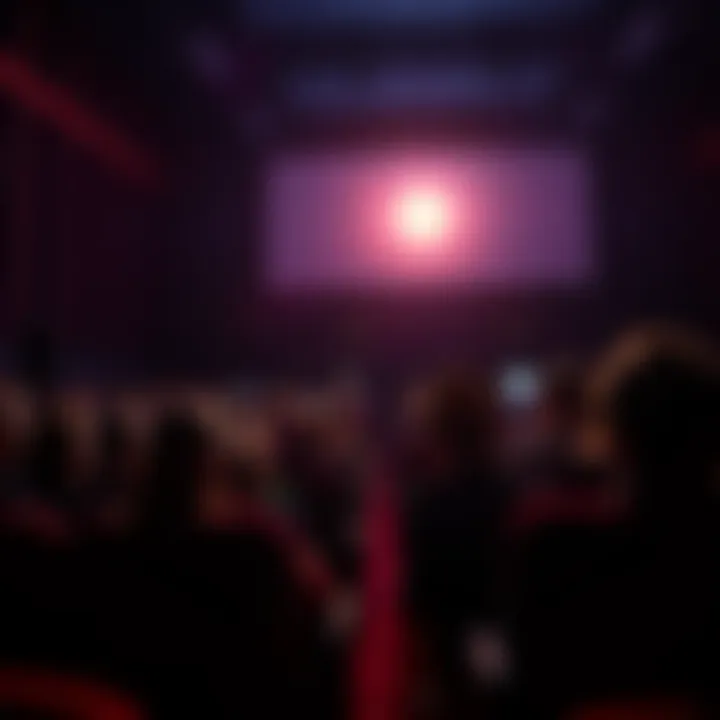Moviegoers Slam Photo-Taking in Theaters | A Call for Better Etiquette
Edited By
Jasmine Lee

Taking photos during movies has ignited a heated debate among cinema lovers. Recent discussions across forums reveal a growing frustration directed at those who disrupt the viewing experience by snapping pictures. A majority of comments highlight the need for stricter etiquette in theaters, suggesting that it's time for people to reconsider their behavior when the lights dim.
Context of the Controversy
As film-goers enjoy anticipated releases, many are confronted with unwelcome distractions. Some attendees express their annoyance over the impulse to capture screen moments, questioning whether it detracts from the overall experience. The responses indicate a mix of frustration and a call for change within theater environments.
Key Themes Emerging from Discussions
Quality vs. Experience
Several commenters emphasize that phone cameras can't replicate the cinematic quality. "Your phone camera is NOT capable of capturing the quality of a cinema image," remarked one passionate poster.
Cultural Differences in Etiquette
Views on acceptable behavior in theaters vary globally, with one user citing severe consequences in Japan for taking photos during screenings, stating, "You get up to 10 years in prison for this shit."
Suggestions for Alternatives
Many believe that taking photos of posters or credits can be a fitting compromise. "If you really need photographic evidence it’s literally that easy," one user noted, promoting common sense over smartphone snaps.
"People are either defensive or blow it off. No one should be pulling out their phone, period." - A frustrated moviegoer
The Mixed Sentiment Around Photography
The discussions encapsulate a significant wave of annoyance towards inattentive moviegoers. Many express a collective desire for better manners, while others see the potential for enforcement measures to escalate into unnecessary interruptions during films.
Key Takeaways
⚠️ A significant portion of commenters consider phone photography a distraction.
📷 Critics argue there's no valid reason to take photos of screenings.
🎭 "Theater etiquette ranges from country to country," highlighting a need for cultural understanding.
The Path Ahead
This ongoing critique of theater photography raises an important question: Should theaters implement stricter rules against disruptions? The ramifications of allowing such behavior might spark ongoing debates, affecting cinema culture for years to come.
As film enthusiasts continue to share their thoughts, it’s clear that this issue won’t fade away anytime soon.
What Lies Ahead for Theater Etiquette
There's a strong chance that cinemas will begin enforcing stricter rules against photography during films. Experts estimate around 70% of respondents in online discussions support measures like clear signage or even staff intervention to curb this disruptive behavior. As theater owners seek to maintain a quality viewing experience, we could see a rise in policies similar to those in international markets, such as Japan, where strict penalties exist. This could lead to more uniform etiquette across theaters, enhancing the collective experience and potentially deterring distracted attendees from disrupting others.
Echoes from the Past: The Smoking Debate
A fitting parallel can be drawn from the historical struggles over smoking in public spaces. Just as cinema-goers are calling for respect and etiquette, diners and patrons pushed back against smoking in restaurants and cafes. Initially, many viewed smoking as a personal choice, akin to taking photos during films. However, as the health implications became evident, a significant shift occurred, with public pressure leading to widespread bans. Similarly, the growing frustration over phone photography might one day prompt theaters to adapt, promoting an environment where everyone can enjoy the cinematic experience undisturbed.
